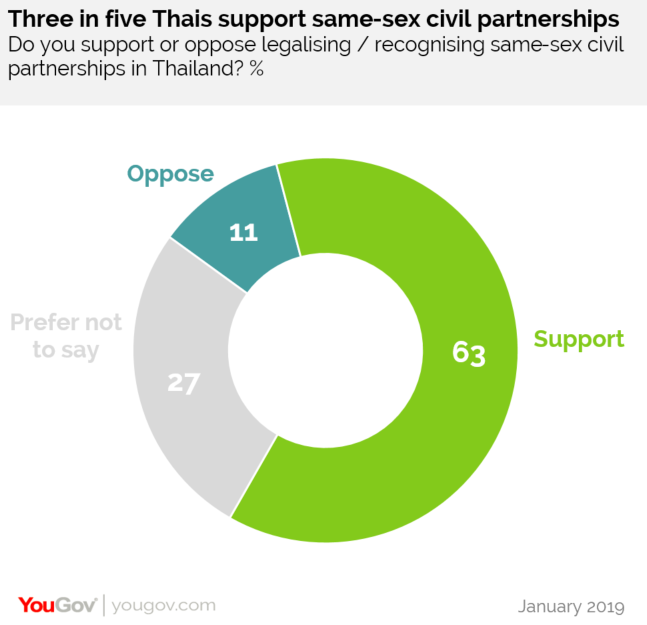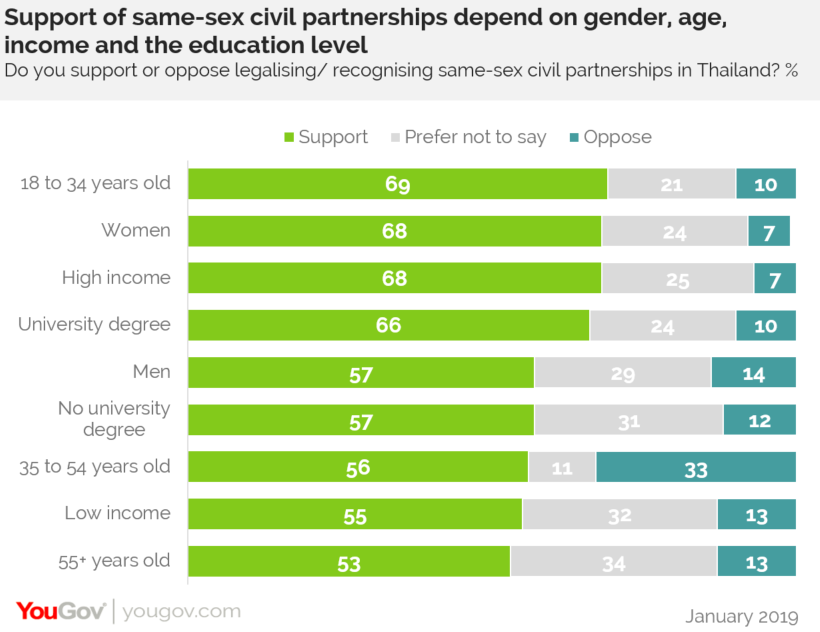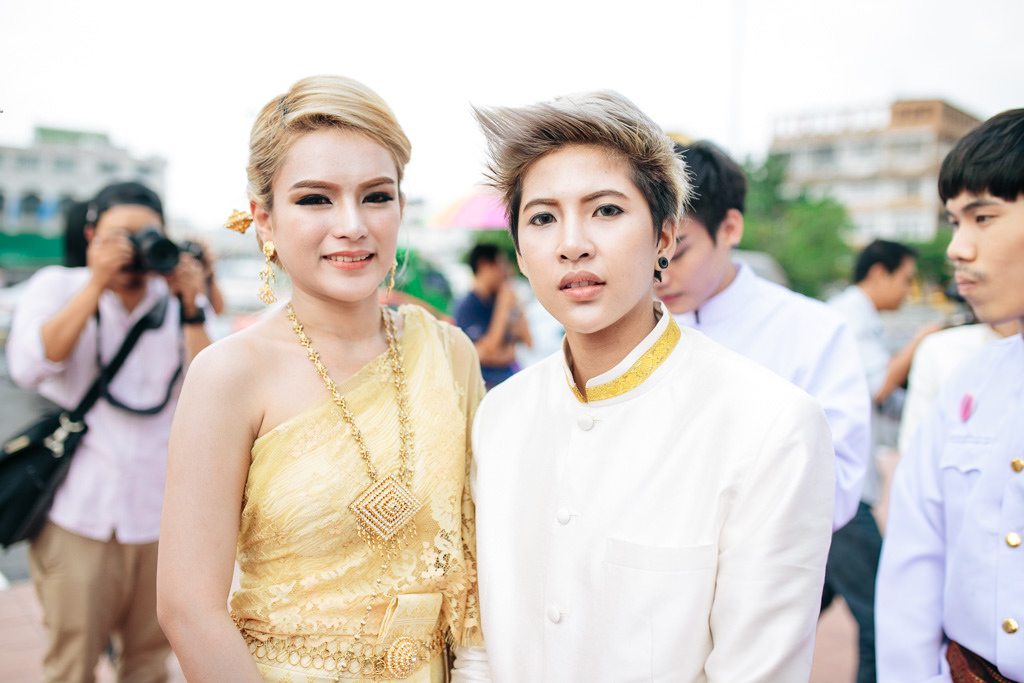Thailand, which on Christmas Day became the first Southeast Asian country to legalize medical marijuana, now stands at the doorway of another potential historic first in the region — the legalization of same-sex partnerships.
While there’s no definitive timeline for when the draft bill — approved by the Cabinet on Christmas — will come to a vote in the National Legislative Assembly, a poll quietly released on Valentine’s Day suggests it could have broader support from the Thai public than you might think.
According to the survey from YouGov, an international Internet-based market research and data analytics firm, three in five Thais, or 63 percent of netizens surveyed, support same-sex civil partnerships. Just one in 10, or 11 percent, opposed the idea outright, while the remaining 26 percent preferred not to say.

“When we heard that Thailand might become the first country in Asia to legalise same-sex civil partnerships, we wanted to know what Thais thought of the issue,” Kesayamol Anutarapinyovong, head of YouGov Thailand, said of the poll, which quizzed 1,025 Thais about their stance.
The data also revealed that women appear to support civil partnerships more than men, while those with higher incomes were more likely to support it than lower wage earners.

Revisions to the “Life Partnership Bill,” originally drafted in 2013, aim to give the LGBT community more rights in regards to family planning, said Kerdchoke Kasemwongjit, deputy director-general of the RLPD, who guaranteed that the act will grant them “90 percent of the rights” other married hetreosexual couples have.
However, the official term for their union will still be “partnership” and not “marriage.”
Much like the United Kingdom’s 2004 Civil Partnership legislation, the updated bill will also address tax reductions, welfare benefits, and the handling of inheritance, according to Thairath, though the right to adopt will not be among the changes introduced.
While it feels like an indisputable step towards equality, some have suggested it’s a political move designed to gain support from the LGBTQ community ahead of next month’s national election.





